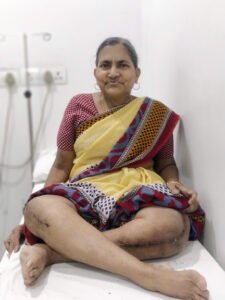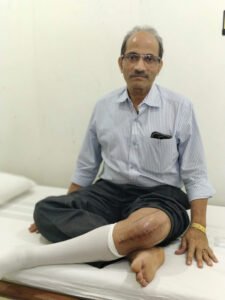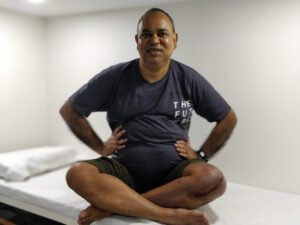What is Microplasty Surgery?
Partial knee replacement, also known as unicompartmental or partial knee arthroplasty, is a procedure where damaged bone or cartilage on one side of the knee joint are removed and replaced by metal or plastic parts. microplasty surgery thane offers several advantages over total replacement. It requires a shorter recovery period and preserves more motion. Partial knee replacement is not an option for those with knee injuries in one area, such as the kneecap, kneecap, or inside.
There is a difference between Total Knee Replacement Surgery (Partial Knee Replacement) and Microplasty Knee Surgery (Partial Knee Replacement).
The damaged cartilage and bone are removed from the knee joint’s surface and replaced by artificial components made of different materials. For those suffering from severe osteoarthritis, or chronic knee pain, a total knee replacement may be the best option. The best way to decide on the type of joint replacement is by knowing which knee compartment has been damaged.
This process is more reliable than partial knee replacements. Revision rates for total knee replacements are lower than those for partial knee replacements.
Microplasty (partial Knee Replacement).
Osteoarthritis patients may only damage one knee compartment. It is more sensible to replace that portion of the knee than all components. The ligaments at the front and back knees will not be affected by a partial replacement. It is important to maintain the body’s natural movement and structure as much as possible.
A partial joint replacement is also less taxing than a complete one. microplasty knee surgery requires less bone and soft tissue dissection. This procedure also causes less blood loss. Partial knee replacements are more effective for patients. A microplasty knee surgery may result in a faster recovery rate than a complete one.
Revisions are a second surgery that is performed to correct any issues that may arise immediately following the original procedure. Revisions are more complicated than primary surgeries.
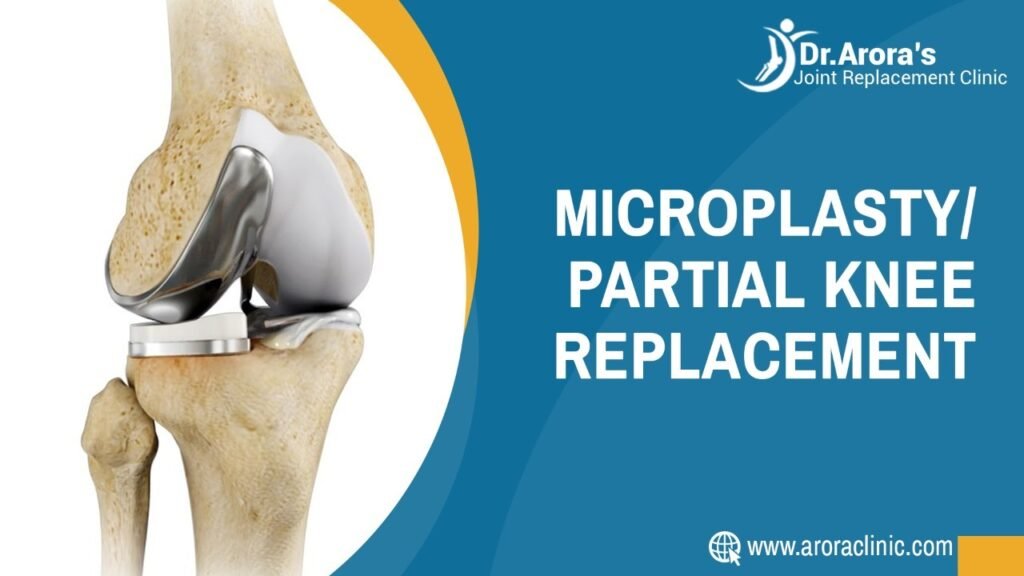
Who could benefit from Microplasty Surgery?
The most common reason for microplasty knee surgery is single-compartmental knee damage from advanced osteoarthritis–significant wear and tear on the knee joint. The cartilage is what acts as a shock absorber within the joints and is damaged in knee osteoarthritis patients. The cartilage wears out and causes joint movements to become less smooth. This can lead to stiffness and pain as the bones rub against one another. After a series of nonsurgical treatments have failed to relieve pain or discomfort, a knee replacement can be considered. Knee replacement’s goal is to stabilize and make your knee movements painless.
Total knee replacement is not a common procedure. However, patients with arthritic damage to only one part of the knee or compartment may be able to have microplasty knee surgery. Medial (inner part of the knee) and lateral (outer part of the knee) are the medical terms used to describe the various compartments. Patellofemoral is where the thigh bone meets the kneecap.
Partial knee replacement (or unicompartmental, or arthroplasty), has the advantage of preserving healthy cartilage, bone, and ligaments in the affected parts of the knee. This is a minimally invasive procedure that uses a smaller incision than an open-knee replacement. There is always the possibility of additional wear to the other side of a half-knee procedure, which is often the medial side. This would mean that the entire knee joint needs to be replaced in another procedure.
What is the point of Microplasty Knee Surgery?
Microplasty knee replacements are still in development. More research is needed to determine their long-term durability and function.
Microplasty knee replacement has been shown to have less impact on soft tissues. This results in a faster, more painless recovery time and a quicker return to regular activities. Evidence suggests that Microplasty knee surgery has long-term advantages comparable to traditional knee replacement.
Microplasty knee surgery is susceptible to complications, as with all surgeries. These complications can include infection, wound healing issues, blood clots and nerve and artery injury.
Microplasty knee surgery is similar to traditional knee replacement surgery. However, it should only be performed by an experienced, well-trained orthopaedic surgeon. Microplasty Knee Surgery in Thane. Talk to your orthopaedic doctor about the risks and benefits of minimally invasive surgery for knee replacement.
Who is qualified to perform Microplasty Surgery?
Microplasty knee surgery is performed by an orthopedic surgeon. This doctor is trained to treat injuries and diseases of the musculoskeletal systems, which includes all bones, joints and ligaments that support your movement. An orthopedic surgeon can diagnose, treat and even rehab your knee problems. Some orthopedic surgeons specialize in one part of the musculoskeletal systems, other than their regular training and expertise, Microplasty Knee Surgery in Thane.
orthopedic surgeons in thane can help you decide if you need a partial or total knee replacement. However, it is important to choose an expert who specializes in both knee and partial knee replacement. A surgeon with extensive experience in microplasty in Thane will be able to help you. This means that there is a low chance of complications and the best outcomes for your patients.
What are my options after Microplasty Surgery?
You’ll be released from the hospital in one to two hours. Although most people return home within a day of microplasty knee replacement surgery, some patients may need to stay for two days. You should be able walk immediately after the surgery. If there are no complications, most people will recover quickly. The average recovery time for microplasty knee replacements is six to eight weeks. Once your surgeon has cleared you, you can resume your normal activities. You can continue to improve your range of motion with physical therapy over several months.
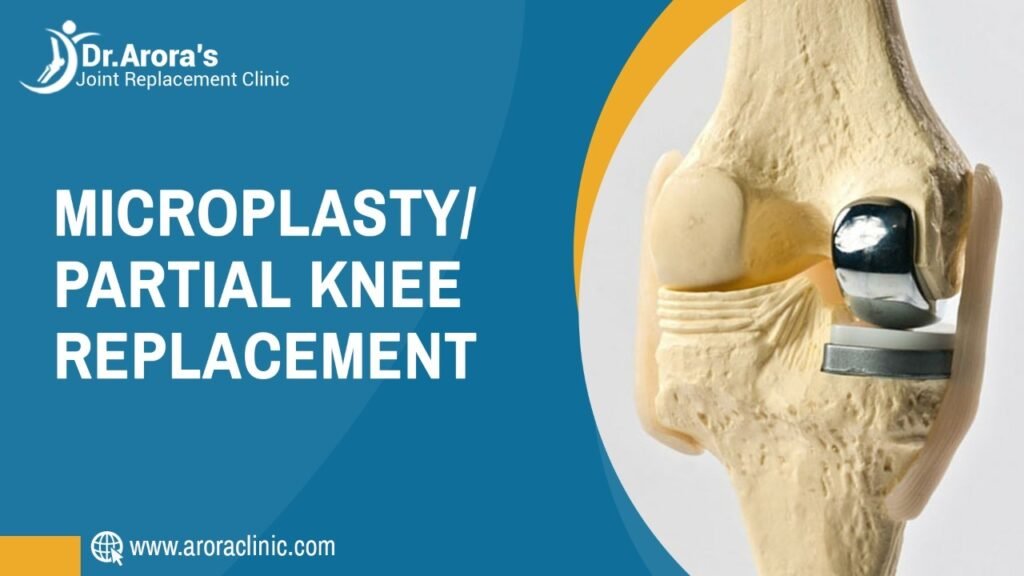

Meet our Surgeons

Our Clinics

Rehabilitation Center
Dedicated Advance Orthopedic Clinic in Thane - All For Bones
Our purpose is reinvigorating the day-to-day life of passionate people like you.
At The Orthopedic Clinic, we pride ourselves on providing the best care possible to our patients. We believe in treating the individual patient, not just their injury. Since our beginning in the Daytona Beach community in 1961, our goal has been to help our patients live their life in full motion through trusted, respectful, and cutting-edge orthopedic care. We have specialist Orthopedic Surgeon in Mumbai.
Treatments We Provide For











About Surgeon
Dr. Bakul Arora is a Consultant Joint Replacement & Orthopaedic Surgeon is one of the leading Knee Replacement Surgeon in Thane and Mumbai with over 4000+ successfully surgeries. Dr. Bakul Arora specialises in Mini-invasive techniques which offer multiple benefits to patients. He does the surgery using Subvastus approach for Knee Replacement surgery and Direct Anterior Approach for Hip replacement Surgery . This new techniques has many advantages for patients like its pain-less , stich-less surgery, patients walks on the same day after surgery, no blood loss, faster recovery etc.


Patients Review on Arora Clinic
FAQS
Knee replacement is required for advanced arthritis of the knee joint, producing painful limitation of movements and restriction in activities of daily living. Knee replacement as a solution should be offered when all non–surgical methods of treatment failed and painkiller medicines and injections also failed to reduce the Knee and hip pains.
Knee replacement can be total or unicondylar, depending on the number of compartments involved. Among the total knee replacement, there are two popular designs- Cruciate Retaining, and Posterior Stabilized. The decision for the design is best taken by the operating orthopedic surgeon based on the integrity of ligaments. Patella resurfacing as a routine is a debatable subject.
Yes, most knee replacement surgeries are minimally invasive, with numerous benefits to the patient, including smaller incisions, less tissue trauma, bleeding and post–operative pain, shorter hospital stays, faster recovery, and earlier return to work and activities — in weeks rather than months. Advantages of Minimally Invasive Knee Replacement Surgery. Patients Start walking in few hours of surgery. Patients start climbing the staircase from second day of his surgery. Patients Discharge with in 3 Days from the Hospital after surgery. No blood loss during the surgery, no blood Transfusion required. Less Physiotherapy.( No Physiotherapist required for home) Less Antibiotic. Stitchless Surgery. Recovery time is just two – three week.
Bilateral knee replacement in the same sitting, can be performed if both the knee joints are damaged to the same extent, however, the medical condition of the patient, and bone quality must be kept in consideration.
Surgery through Minimally Invasive technique patients start walking on the same day and staircase climbing starts from the second day of surgery. Patients can resume his work after 3 – 4 week.
The most significant risks include Infection, Deep vein thrombosis,and Aseptic loosening of implants. The risks correlate with the co-morbid medical condition, and must be discussed with the patient before surgery.
Patients normally require hospitalization for 3-4 days in single knee replacement, and up to 5-6 days in both knee replacement surgery
A single knee replacement takes approximately 90 min- 2 hours. Both knee replacement surgery takes approx 2-3 hours.
Years ago, knee replacement surgery was reserved for elderly patients due to a high complication rate and lack of implant durability. Modern techniques have allowed orthopaedic surgeons to base surgical decisions on a patient’s pain and disability, and not necessarily chronological age. Most patients who undergo knee replacement are between the ages of 50 and 80, but surgeons evaluate patients individually and primarily on their physiologic age and demands.
Patients can resume his/her light work after discharge from the hospital, no need for rest.
Patients are given epidural anesthesia for surgery, and post op pain relief. They are expected to follow instruction from physiotherapist regarding muscle training.
OUR HOSPITAL PARTNERS
MUMBAI
⇒ Wockhardt Hospital Mumbai Central, Mira road & Vashi
⇒ Apollo Spectra Hospital, Tardeo and Chembur
⇒ Cloud 9 Hospital, Malad
⇒ Criticare Hospital, Andheri
THANE
⇒ Arora Clinic, Hiranandani Meadows
⇒ Bethany Hospital, Vasant Vihar
⇒ Currae Hospital, Kapurbawdi
⇒ Horizon Hospital, Ghodbunder
⇒ Infinity Hospital, Majiwada
⇒ Lakecity Hospital, Khopat
⇒ Oscar Hospital, Majiwada
⇒ Drone Hospital, Bhiwandi



